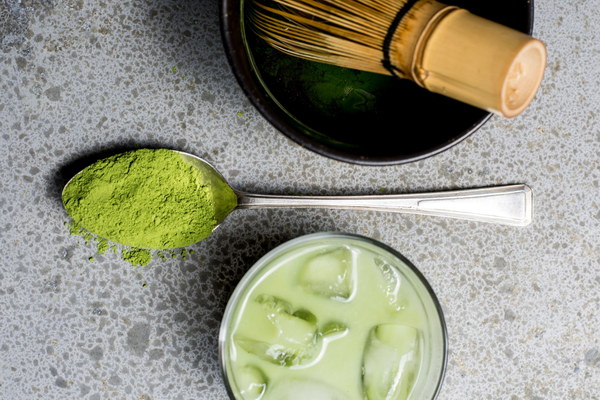Boosting Thyroid Function A Guide to Nutritional Supplements for Hyperthyroidism
Introduction:
Hyperthyroidism is a condition where the thyroid gland produces an excessive amount of thyroid hormones. This can lead to various symptoms such as weight loss, palpitations, and fatigue. While medication is often prescribed to manage hyperthyroidism, dietary adjustments can also play a crucial role in supporting thyroid health. In this article, we will explore the best nutritional supplements for hyperthyroidism, offering a natural approach to balancing thyroid hormone levels.
1. Selenium:
Selenium is a mineral that plays a vital role in the production of thyroid hormones. It helps in the conversion of the inactive form of thyroid hormone (T4) into the active form (T3). Incorporating selenium-rich foods into your diet can support thyroid function. Some excellent sources of selenium include Brazil nuts, seafood, and whole grains.
2. Iodine:
Iodine is an essential element for the synthesis of thyroid hormones. However, excessive iodine intake can exacerbate hyperthyroidism symptoms. It is crucial to maintain a balanced intake of iodine. Foods high in iodine include seaweed, iodized salt, and dairy products. Consult with your healthcare provider before taking iodine supplements, as they can be harmful if not used properly.
3. Vitamin D:
Vitamin D plays a significant role in regulating the immune system and thyroid function. Deficiency in vitamin D has been associated with an increased risk of thyroid disorders. Aim for 15-30 minutes of sunlight exposure daily to obtain adequate vitamin D, or consider a vitamin D supplement. Foods rich in vitamin D include fatty fish, egg yolks, and fortified dairy products.

4. Omega-3 Fatty Acids:
Omega-3 fatty acids have anti-inflammatory properties that can help manage the symptoms of hyperthyroidism. These healthy fats can be found in fish oil, flaxseeds, chia seeds, and walnuts. Consult with your healthcare provider before taking omega-3 supplements, as excessive intake may interfere with certain medications.
5. Selenium:
Selenium is a potent antioxidant that can help reduce oxidative stress and inflammation in the thyroid gland. Selenium-rich foods include Brazil nuts, mushrooms, and legumes. Selenium supplements may also be beneficial, but it is essential to follow your healthcare provider's recommendations to avoid potential side effects.
6. Vitamin B12:
Vitamin B12 is crucial for the production of thyroid hormones. Deficiency in vitamin B12 can lead to thyroid dysfunction. Animal-based foods such as beef, fish, and eggs are excellent sources of vitamin B12. If you are a vegetarian or vegan, consider a vitamin B12 supplement to ensure adequate intake.
7. Zinc:
Zinc is a trace mineral that plays a role in the synthesis and release of thyroid hormones. Foods rich in zinc include oysters, beef, and legumes. While zinc is essential for thyroid health, excessive intake can cause adverse effects. Consult with your healthcare provider before taking zinc supplements.
Conclusion:
Balancing thyroid hormone levels is essential for managing hyperthyroidism. While medication is often necessary, incorporating the right nutritional supplements into your diet can support thyroid function. Selenium, iodine, vitamin D, omega-3 fatty acids, vitamin B12, and zinc are some of the best supplements for hyperthyroidism. Always consult with your healthcare provider before starting any new supplement regimen, as individual needs may vary.









